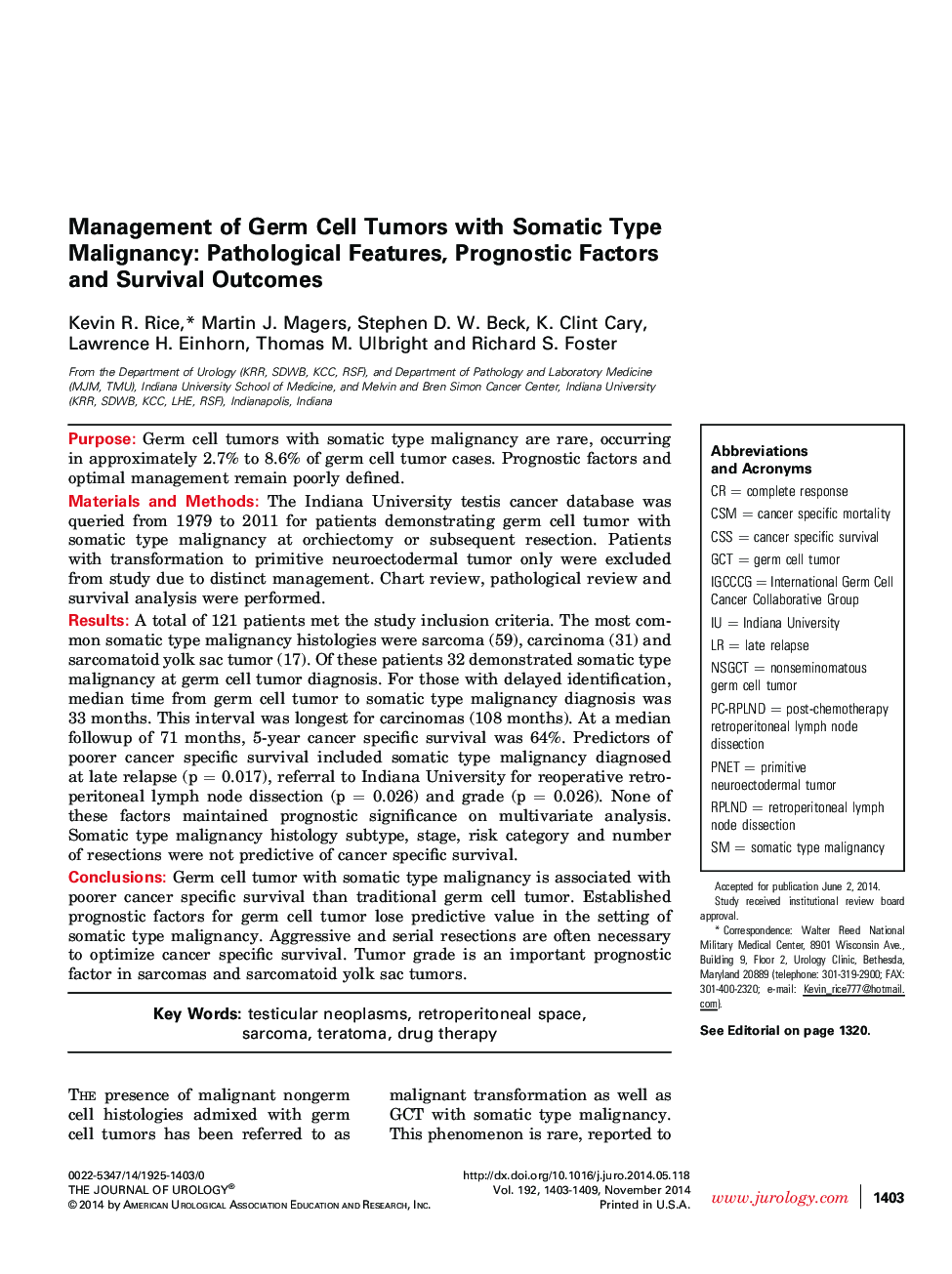| Article ID | Journal | Published Year | Pages | File Type |
|---|---|---|---|---|
| 3863894 | The Journal of Urology | 2014 | 7 Pages |
PurposeGerm cell tumors with somatic type malignancy are rare, occurring in approximately 2.7% to 8.6% of germ cell tumor cases. Prognostic factors and optimal management remain poorly defined.Materials and MethodsThe Indiana University testis cancer database was queried from 1979 to 2011 for patients demonstrating germ cell tumor with somatic type malignancy at orchiectomy or subsequent resection. Patients with transformation to primitive neuroectodermal tumor only were excluded from study due to distinct management. Chart review, pathological review and survival analysis were performed.ResultsA total of 121 patients met the study inclusion criteria. The most common somatic type malignancy histologies were sarcoma (59), carcinoma (31) and sarcomatoid yolk sac tumor (17). Of these patients 32 demonstrated somatic type malignancy at germ cell tumor diagnosis. For those with delayed identification, median time from germ cell tumor to somatic type malignancy diagnosis was 33 months. This interval was longest for carcinomas (108 months). At a median followup of 71 months, 5-year cancer specific survival was 64%. Predictors of poorer cancer specific survival included somatic type malignancy diagnosed at late relapse (p = 0.017), referral to Indiana University for reoperative retroperitoneal lymph node dissection (p = 0.026) and grade (p = 0.026). None of these factors maintained prognostic significance on multivariate analysis. Somatic type malignancy histology subtype, stage, risk category and number of resections were not predictive of cancer specific survival.ConclusionsGerm cell tumor with somatic type malignancy is associated with poorer cancer specific survival than traditional germ cell tumor. Established prognostic factors for germ cell tumor lose predictive value in the setting of somatic type malignancy. Aggressive and serial resections are often necessary to optimize cancer specific survival. Tumor grade is an important prognostic factor in sarcomas and sarcomatoid yolk sac tumors.
